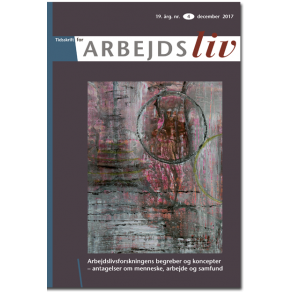Performance managed university education and calculating students – when the means becomes a barrier to reach the ends
DOI:
https://doi.org/10.7146/tfa.v17i4.109004Abstract
This article builds on educational studies of higher education in establishing performance management of master studies as a context for master students. In a Danish context the basis of this performance management is built on a political wish to orient higher education towards labor market relevance. As a result of the introduction of performance management in higher education, students increasingly position themselves as calculating individuals catering to performance measures at the expense of more self-managing and independent ways of approaching academic content and methods during studies. The article questions the em- ployability of students with higher calcula- tion skills and less academic independence. Instead this calculating position might be seen as a negative side effect of educational reform, undermining the original purpose of higher labor market relevance of students. The analysis is built on discourse theory and the concept of subject positions, which forms the basis of two basic constructions of the ideal student. First, the classical image of a master thesis student as ‘independent researcher’ is introduced, followed by the new image of ‘the calculating student’, who believes in authority. The constructions are created from both educational and management perspectives on how a student should act. The analysis shows how especially master thesis projects in the humanities become difficult to deal with from the position of ‘calculating student’, first because the hu- manities represent fluffy subjects and second because the master thesis project is less managed by narrow performance indicators than other educational elements. Previous labor market studies based on discourse analysis are introduced as a basis of discussing how the ‘independent researcher’ and the ‘calculating student’ can be understood as relevant for employability. The discussion points towards characteristics such as independence, assessment capability and risk-taking that match the image of the ideal employee better than the characteristics attached to the ‘calculating student’. The article suggests that performance management, introduced as a means of securing higher labor market relevance in higher education, may be creating students who are, paradoxcically, less prepared for labor market than previously.
Downloads
Published
How to Cite
Issue
Section
License
Forfattere, der publicerer deres værker via dette tidsskrift, accepterer følgende vilkår:
- Forfattere bevarer deres ophavsret og giver tidsskriftet ret til første publicering, samtidigt med at værket ét år efter publiceringen er omfattet af en Creative Commons Attribution-licens, der giver andre ret til at dele værket med en anerkendelse af værkets forfatter og første publicering i nærværende tidsskrift.
- Forfattere kan indgå flere separate kontraktlige aftaler om ikke-eksklusiv distribution af tidsskriftets publicerede version af værket (f.eks. sende det til et institutionslager eller udgive det i en bog), med en anerkendelse af værkets første publicering i nærværende tidsskrift.
- Forfattere har ret til og opfordres til at publicere deres værker online (f.eks. i institutionslagre eller på deres websted) forud for og under manuskriptprocessen, da dette kan føre til produktive udvekslinger, samt tidligere og større citater fra publicerede værker (se The Effect of Open Access).





